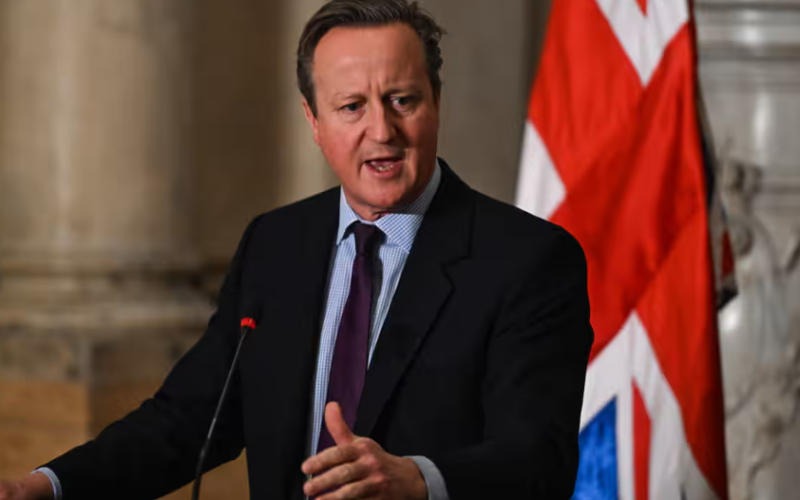Former UK Prime Minister David Cameron has expressed confidence in the proposed Rwanda bill, stating that it is poised to be an effective solution in preventing small boat crossings. The bill, designed to address the challenges posed by irregular migration, particularly through perilous sea routes, has sparked discussions about its potential impact and the broader strategies employed to manage migration.
David Cameron’s endorsement of the Rwanda bill underscores the urgency felt by policymakers to address the issue of small boat crossings, a phenomenon that has garnered significant attention due to the risks associated with these perilous journeys. The proposed legislation aims to create a deterrent against attempting such crossings while seeking alternative solutions to manage migration flows more effectively.
The bill’s core objective is to curb the flow of irregular migrants attempting to reach the UK via small boats, often departing from various points along the French coast. The perilous nature of these journeys, coupled with the humanitarian challenges they present, has prompted governments to explore measures that discourage such attempts while ensuring compliance with international human rights standards.
David Cameron’s endorsement carries weight, given his experience as the UK Prime Minister during a period marked by increased scrutiny of migration policies. His assertion that the Rwanda bill will “get the job done” indicates a belief in the bill’s effectiveness in achieving its intended outcomes. However, the statement has also ignited debates about the potential ramifications and ethical considerations associated with such measures.
The proposed legislation involves an agreement between the UK and Rwanda, wherein individuals intercepted while attempting small boat crossings would be transferred to Rwanda for processing. This approach aims to disrupt the established routes and deter would-be migrants from embarking on perilous sea journeys.
Critics of the Rwanda bill argue that it raises ethical concerns regarding the outsourcing of asylum processing and the potential lack of oversight in third-party countries. The bill prompts a reevaluation of the balance between border security and the protection of human rights, with skeptics expressing apprehension about the conditions and legal safeguards for individuals processed in Rwanda.
In the realm of responsible journalism, it is imperative to present a comprehensive view of the Rwanda bill, considering both the perspectives of its proponents and critics. Coverage should highlight the potential consequences, ethical considerations, and the broader implications for the UK’s migration policies.
As the discussions surrounding the Rwanda bill unfold, it becomes evident that the management of migration is a complex and multifaceted challenge. Policymakers are tasked with finding solutions that address the humanitarian aspects of migration while safeguarding national interests and security concerns.
In conclusion, David Cameron’s assertion that the Rwanda bill will effectively curb small boat crossings adds a significant dimension to the ongoing discourse on migration policies in the UK. The proposed legislation prompts reflection on the delicate balance between border control measures and the adherence to international human rights standards. As the bill progresses through legislative processes, it remains a focal point for debates on the ethical dimensions and practical implications of addressing irregular migration through external processing arrangements.








